Together We Lead: A New Era of HBCU Transformation
Media
May 23, 2025
The Nationwide Solutions portfolio makes significant, long-term investments in bringing evidence-based solutions to national scale.
We believe in taking what works – programs and strategies based on evidence and already producing results in one or more states or across several cities – and making right-sized investments that bring those strategies to scale nationally. We believe in the power of scale to create a greater impact and touch more lives. Poverty is a complex and immense social issue. There is no silver bullet, no one solution to the numerous problems that trap young people and families in poverty in the US, so we invest in solutions across domains that seek to increase economic mobility in a variety of ways.
Visionary leaders with evidence-based programs are making a meaningful difference in the lives of young people and families across the country. Yet philanthropy’s prevailing model hinders leaders’ ability to think bigger and act boldly to pursue nationwide growth. The market prioritizes small-dollar grants over the large, unrestricted growth capital leaders need to meet the scale of the problems they address. Larger grants, especially of $1 million dollars or more, are rare and often come with restrictions, stifling innovation and expansion.
is the average grant size
Blue Meridian makes investments of $100 million or more in a single initiative that will implement its bold, national scaling plan over several years. These large-scale, long-term investments allow exceptional leaders to unleash their visions with confidence that they have the capital they need to make a meaningful impact against a significant social problem. This model of unprecedented, right-sized growth capital has the potential to improve life trajectories nationwide and could become the new normal for philanthropic investing.
or more of cumulative investment by Blue Meridian in a single initiative
To date, we have invested in the following 12 organizations seeking to scale nationally:
More than 600,000 children experience foster care involvement each year. However, with the right interventions and support, many of these youth could safely remain at home with their families, avoiding the negative life outcomes associated with unnecessary foster care involvement. At the same time, for those youth already in the foster care system, more than 20,000 will age out annually. Facing an abrupt loss of services and having little to no emotional support and guidance, these young adults are more likely to face homelessness, unemployment, and mental health issues.
Through its evidence-based Intercept and LifeSet programs, Youth Villages works to transform the life prospects of youth at risk of entering or aging out of foster care.
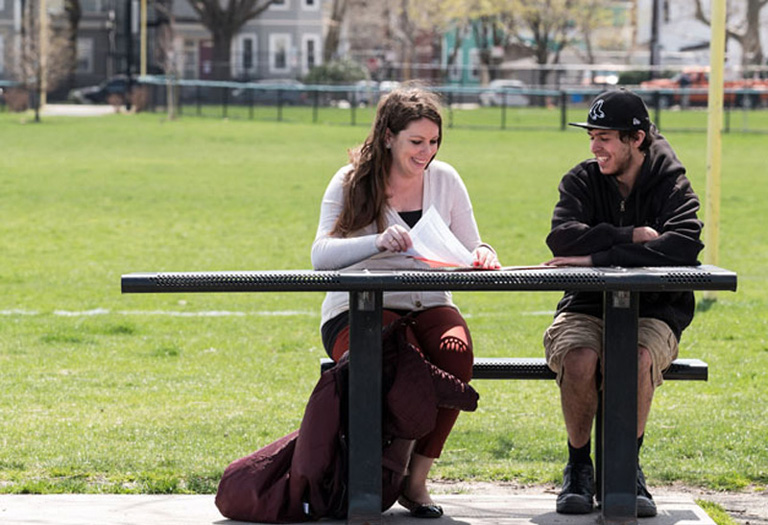
Approximately 50,000 youth in foster care have an especially difficult time finding a permanent home and face a host of negative outcomes if they remain in foster care or when they age out of the system. Wendy’s Wonderful Kids, a program of the Dave Thomas Foundation for Adoption, uses a unique recruitment model to match the hardest‐to‐place children – those ages nine or older, with special needs, or in sibling groups – with appropriate adoptive families. Its model is 1.7 to 3 times more effective than conventional placement models. At scale, it has the potential to transform foster care systems across the country, setting new standard practices for matching hard-to-place children with families.
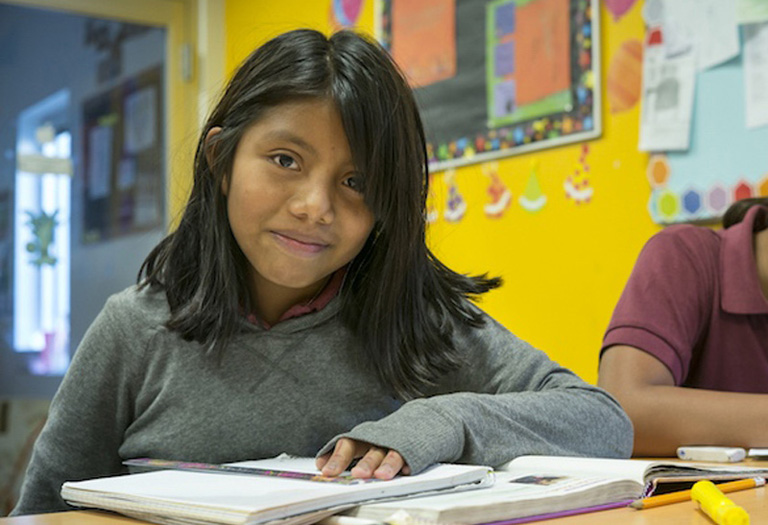
Unplanned pregnancy is one of the strongest predictors of future poverty. Upstream USA aims to break the cycle of intergenerational poverty for the women who have 3 million unplanned pregnancies every year. Upstream USA provides evidence-based training and wraparound services to all types of healthcare organizations across the country, so they can provide patient-centered access to the full range of contraceptive methods including long-acting, reversible contraception – reducing unplanned pregnancies, and improving economic opportunity, educational attainment and upward mobility for both parents and children.

Children living in poverty are more likely to fall behind in social, emotional, cognitive, and behavioral development. While low-income children under age four can be difficult to reach in formal settings such as pre-kindergarten, 90% of them visit a pediatrician. HealthySteps, a program of ZERO TO THREE, is a national model of enhanced pediatric primary care that integrates a child development specialist into the primary care team to improve developmental outcomes with a particular emphasis on families living in low-income communities. Screening, advice and referrals give families the knowledge, support and resources they need to nurture their children’s healthy development.
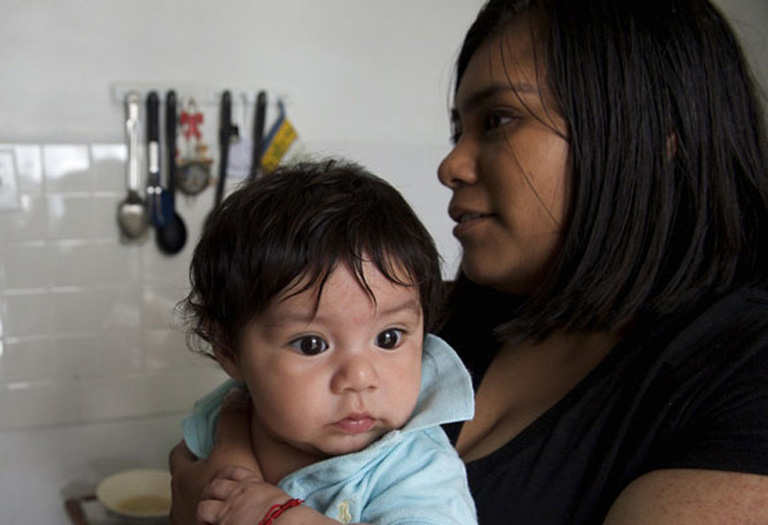
Despite the growing need for talent, a skills gap persists for low-income individuals hoping to obtain in-demand jobs. U.S. businesses are expected to hire for more than 8 million new positions over the next decade, against a backdrop of approximately 7 million currently unfilled openings. Social Finance is dedicated to mobilizing capital to drive social progress. The organization brings partners together to measurably improve the lives of those in need through a set of financing strategies. Their UP Fund will provide low-income individuals with access to high-quality, industry-recognized job training programs and other needed supports to help them achieve economic mobility, while building the inclusive, skilled labor force the nation needs for long-term competitiveness.

Over 37 million people in the United States live in poverty, yet many are unable to access the social safety net – a web of more than 80 public benefit programs – intended to support them. Meanwhile, billions in government benefits like SNAP, WIC, and Medicaid remain unclaimed every year by people who are eligible. Working at the intersection of technology and government, Code for America is showing that it’s possible for government to work well for everyone and serve people with dignity and respect. Code for America works shoulder to shoulder with community organizations and government to build digital tools and services, change policies, and improve programs for all people. Through its Safety Net Innovation Lab, Code for America will remove key barriers that make it hard for families and individuals living in poverty to access the public benefits they deserve.
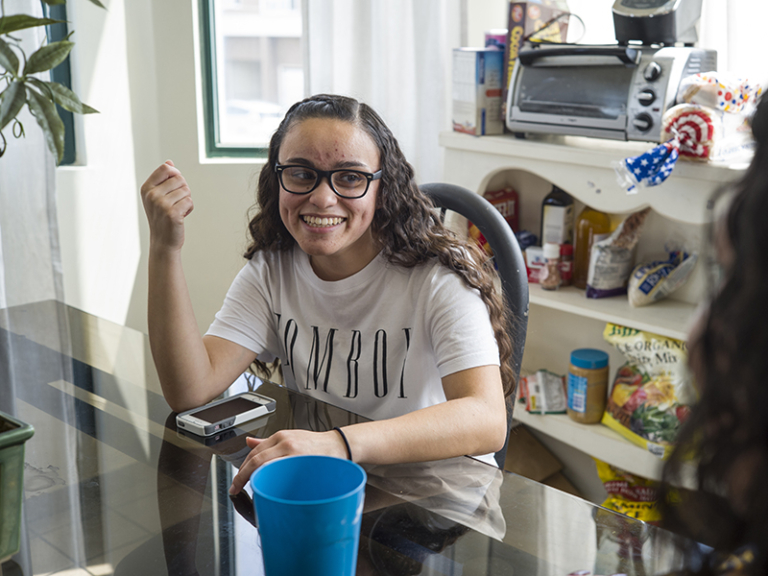
The traditional path to economic mobility runs through higher education institutions. Individuals who obtain a college degree earn nearly $500K more over their lifetime than those with a high school diploma alone. Within the past year, the Thurgood Marshall College Fund, United Negro College Fund, and Partnership for Education Advancement launched the HBCU Transformation Project, a historic collaboration to build the capacity of and address infrastructure needs for Historically Black Colleges and Universities (HBCUs). The Initiative aims to improve socioeconomic outcomes in Black communities by increasing HBCU health and sustainability, improving student outcomes including retention and graduation rates, expanding enrollment, and increasing capacity-building with faculty and staff. Ultimately, the goal of this investment in the future of HBCUs is to spur a projected annual increase of more than $1 billion in Black wealth in the US economy by 2026.

Accumulating financial assets allows families to build intergenerational wealth, invest in opportunities like homeownership or education, and weather times of economic distress. Yet, many anti-poverty programs and policies discourage or penalize saving. To support families living in federally subsidized housing – some of the most asset-poor families in the country – Compass Working Capital works to expand the national scope and impact of a vastly underutilized federal housing initiative, the Family Self-Sufficiency (FSS) program. Through the program, families can build savings in a federally protected escrow savings account, which grows as families increase their earned income, and rigorous evaluations show participant earnings are 23% higher and usage of public assistance was 39% lower after three years of participation.

Today, over 100 million Americans are living at or near the poverty line, a disproportionate number of whom are people of color, who face multiple barriers to opportunity. PolicyLink is a national research and action organization that works to advance access to economic and social opportunity by uniting organizational leaders, government agencies, and corporations around a shared focus. Their “A Nation that Works for All” strategy is building the infrastructure and capacity needed to drive long-term policy change.

In the United States, economic mobility remains a distant dream for millions striving against entrenched financial barriers. An estimated 11 million low-income women face daunting obstacles in accessing traditional financial services and working capital. Grameen America envisions a society in which all entrepreneurs have access to fair and affordable financial services to support upward economic mobility. Grameen’s commitment to providing $40 billion of capital to underserved women entrepreneurs with their latest initiative, “Women Are Limitless: Accelerating Inclusive Growth and Impact”, offers microloans, peer networking, asset- and credit-building services, and financial, business, and health education to build social capital and broaden entrepreneurs’ support systems by 2033.

Merit America provides a path to careers with upward mobility for low-wage workers who want to make a career transition but lack the time or money for college or full-time training programs. The program can be completed part-time and on the learner’s schedule, a key differentiator for busy working adults. Merit America partners with major employers, using labor market data to identify high-demand roles and skills required to succeed. Merit America then teaches these skills through 14- to 24-week programs with flexible asynchronous and live online instruction, coaching, and peer support.

For over 25 years, Per Scholas has worked to build greater diversity in the tech industry by providing adult job seekers who are significantly underrepresented in the technology field with the critical skills and networks they need to launch well-paying careers in the tech field. Per Scholas designs in-demand accelerated and job-specific bootcamp-style adult learning experiences aligned with employer needs. It then provides in-person and remote 10-15-week intensive, hands-on technical training, professional development, financial security coaching, and other learner support services for those who need them. Post course completion, Per Scholas alumni can access ongoing job placement, advanced training, financial coaching, and career development opportunities.
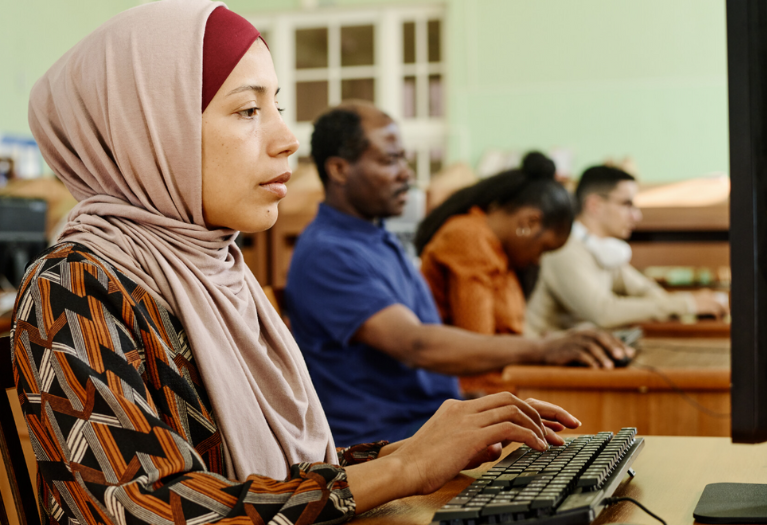
Media
May 23, 2025
Media
May 16, 2025
Media
Apr 30, 2025
Media
Apr 18, 2025
Media
Apr 2, 2025
Media
Apr 2, 2025
Media
Apr 1, 2025
Media
Mar 21, 2025
Media
Feb 26, 2025
Media
Feb 20, 2025
